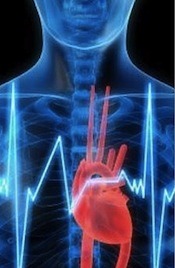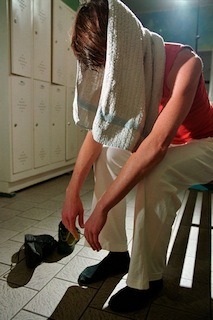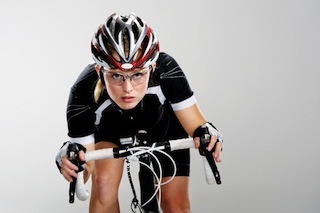What is Heart Rate Variability?
Contrary to popular belief, the heart does not beat with metronome regularity. The heart, in fact, speeds up when you inhale, and slows down when you exhale. The difference is known as heart-rate variability (HRV) and is a great indication of your overall health, stress levels and readiness to train.
Why should you measure HRV?
In practice, it’s difficult to accurately assess the impact of training sessions on the body. How do you fix your training load? How well is your body adapting to the training? Is there any accumulated fatigue and how much rest do you need for recovery? How do I know I am getting the right training effect? Have I improved? Am I over or under training? The body can endure just so much continual physical stress before it begins to break down. So how do you know when to train and when to rest? The answer is HRV as it is a great indicator of health, bodily stress and readiness to train.
You don’t get fitter during exercise; instead you get fitter recovering from exercise. The emphasis is therefore always on maximizing training time (and usually intensity as well) in order to give the body the biggest stimulus for adaptation. That only works if the body has been able to repair and adapt before the next exercise session. As well as needing ample time for recovery, the body requires looking after in other ways in order to recover fully – quality of sleep, nutrition, and an absence of stress all play major roles here.

Most injuries happen when the body is stressed or tired, so by avoiding hard sessions when your body is already fatigued you minimize that risk. You can also keep training more flexible, allowing yourself to be guided by your bodies needs, helping to reduce another common problem of training monotony in endurance athletes. By resting and watching your daily HRV rise to your optimum readiness level you can now perfect your taper ahead of a big event.
By knowing your HRV, you can objectively measure your body’s response to each workout. Often this coincides with your feelings or subjective measures, but there will be times when your HRV indicates that you really need to take it easy, or take a rest day, then you will find you can train harder the next day. Conversely, you may be feeling sluggish after a long day at work, but with a normal ithlete reading, you can head out confidently for a bike ride or run and feel much better as a result. One of the biggest benefits is that you can consistently improve performance without the normal risks of injury or illness.
What determines your HRV?
Studies have shown that HRV varies between individuals according fitness level, state of mood, gender and age. Drugs and stimulants, such as caffeine, in your system also have an important effect on HRV. Your HRV response to each workout will also vary dependant on the type of exercise, level and intensity.
Generally speaking the more relaxed and unloaded (free from fatigue) the body is, the more variable the time between heartbeats. HRV data can indicate the impact of fatigue due to prior exercise sessions, hydration levels, stress and even the degree of performance anxiety, nervousness or other external stressful influences. A healthy, well-rested body will produce a wider gap than a stressed out/overtrained body.
How is HRV different from subjective measurements?
Many athletes measure workouts precisely in hours, distance or repetitions but recovery only in subjective measurements such as feelings of tiredness and soreness of legs. HRV is much more sensitive than this, taking in to account total stress placed upon your whole body.

Taking your morning pulse is a classic check for signs that your body is under stress and needs recovery, and is probably performed by at least 50% of experienced athletes. A morning pulse rate a few beats per minute higher than normal is a sign to go easy. The trouble is that there are multiple factors able to influence your heart rate and it is not that easy to perform the test accurately or to track when changes become significant enough to take action.
You can think of HRV measurement as a more up to date morning pulse test. Because HRV is much more sensitive that resting heart rate, you get feedback at an earlier stage that helps avoid the development of true overtraining.
How can I measure HRV?
After years of investigation and well over 500 scientific research papers Simon Wegerif is well respected as an HRV expert. In 2009 Simon went on to found ithlete. For anyone who enjoys competitive sports, ithlete is the only iPhone or Android app that accurately measures, predicts and adjusts a personal training regimen to maximise your athletic performance whilst maintaining excellent health.
Every morning during a 1-minute test ithlete measures your HRV, as well as your resting heart rate. After you have built up a baseline over a few days, the ithlete software algorithms compare your daily readings with baseline to determine if any significant changes have taken place. These are reflected in traffic lights for today’s training and a chart to help you track trends. For more information visit myithlete.com
InsideTracker is currently partnering with ithlete to create a better early warning system for athletes and coaches trying to reduce injuries and prevent overtraining. A better approach for most athletes is combining blood analysis with Heart Rate Variability (HRV) testing, which gives you information about your personal testosterone: cortisol ratio, a key indicator of overtraining. InsideTracker plans will provide you with food recommendations, exercise modifications, and lifestyle changes that you can implement to improve your HRV score.
We would love to have you try ithlete. To get you started, you will need a chest strap monitor, ithlete ECG receiver and the ithlete app. Please click here to purchase your ithlete equipment using this exclusive discount code INSIDET10 at the basket stage for 10% off.
